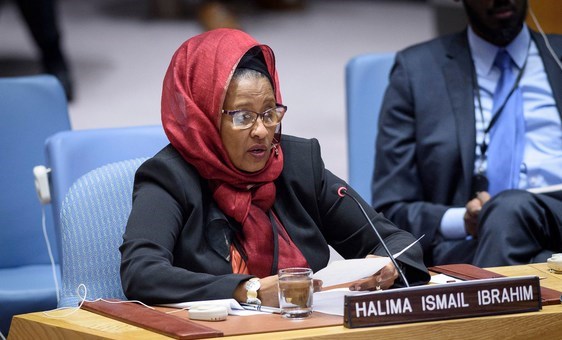
Friday November 22, 2019

The head of Somalia´s electoral commission told the U.N. Security Council on Thursday that 2020 is "a pivotal year" for the country whose citizens have been denied the right to political participation for 50 years and are hoping for an election with universal voting.
Halima Ismail Ibrahim said the country´s political leaders must follow through on agreements since 2011 to holding a one-person, one-vote election as a replacement for "clan-based power-sharing." In presidential elections most recently in 2017, lawmakers were chosen by about 14,000 clan delegates and they in turn elected a president.
Ibrahim urged Somali leaders to treat one-person, one-vote elections in 2020-2021 "as a constitutional obligation and a national priority and provide the necessary political and financial support" for the National Independent Electoral Commission which she chairs to conduct an election with universal voting next year.
Since Somalia became an independent nation in 1960, she said, "universal suffrage elections have only been conducted twice, 1964 and 1969."
Later that year, a coup brought military leader Siad Barre to power. After three decades of civil war, extremist attacks and famine, Somalia established a functioning transitional government in 2012 and has been working to rebuild stability.
But U.N. Secretary-General Antonio Guterres has said the government must still tackle violent extremism, terrorism, armed conflict, political instability and corruption.
James Swan, the U.N. envoy for Somalia, told the Security Council that "political dynamics" in the country are increasingly focusing on the 2020 election and the federal government has committed to adopting an amended federal constitution by June 2020, but significant challenges remain.
First and foremost, he pointed to the lack of "effective cooperation" between the central government and states for more than a year, which has become "an obstacle to achieving important national priorities."
"Somalia´s leaders must act urgently to break this stalemate between the central and the federal member states in the interest of the nation," Swan said.
He also urged parliament to approve the electoral code and amendments to the law on political parties in December, warning that any delay "puts the 2020 electoral calendar at risk."
Somalia´s U.N. Ambassador Abukar Dahir Osman told the council the government is continuing to make preparations to hold one-person, one-vote elections in the last quarter of 2020. And it has made a commitment to pass the electoral law by the end of December and to conclude the review of the constitution by June 2020, he said.
Osman said President Mohamed Abdullahi Mohamed´s meeting Wednesday with two former presidents "sends a strong signal of Somalia´s commitment to ... truly historic, democratic elections next year."
He said the government recognizes it will not meet its goals and reform agenda without the cooperation and engagement of member states - but this requires "genuine reconciliation efforts and holding fair, transparent and inclusive elections" in the states.
"Where electoral process does not meet those criteria, the federal government will not recognize the outcomes and so should our partners," he said.
U.N. envoy Swan stressed that "insecurity remains a major challenge to progress in Somalia" because al-Qaida linked al-Shabab militants continue "to execute deadly terrorist attacks against civilians as well as military targets."